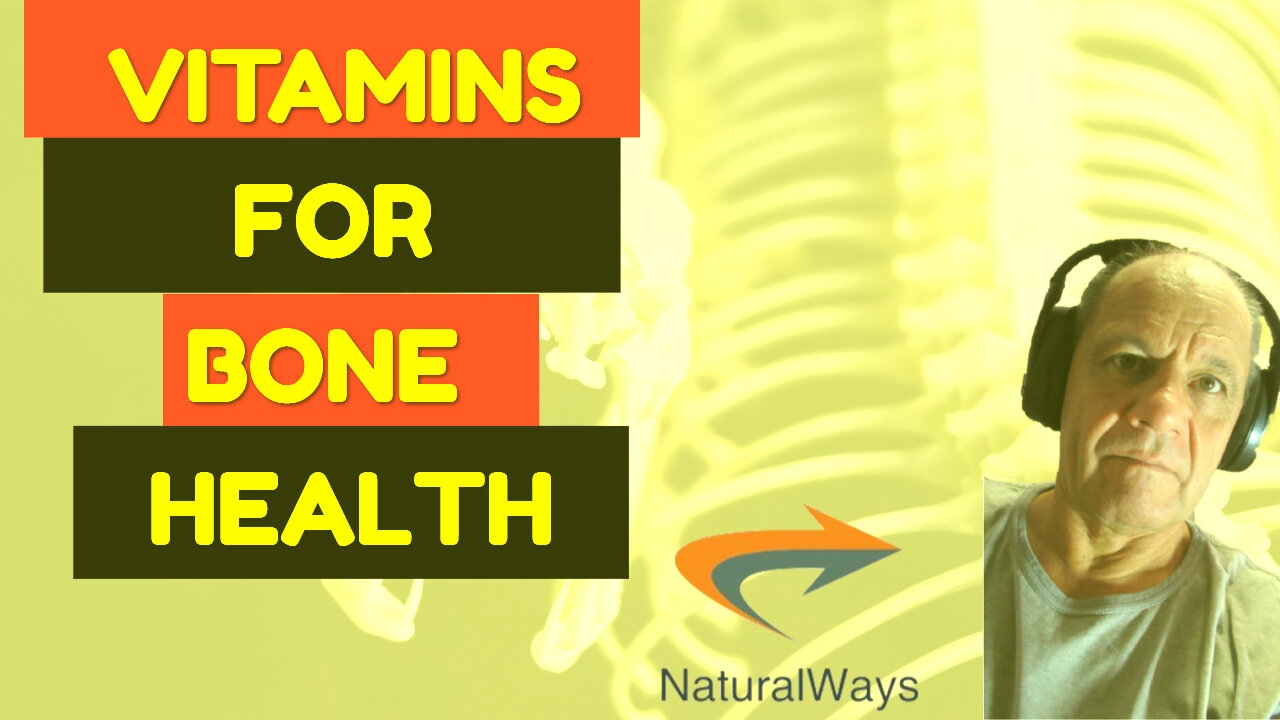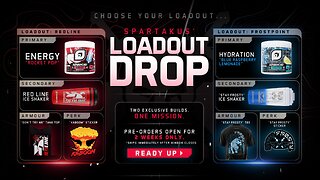Premium Only Content

Vitamins Essential For Bone Health
Essential Vitamins and Minerals for Bone Health
Bones are a vitally important part of our body because they provide structure, protect the organs, and provide a framework for the muscles. They also act as a bank for the storage of calcium.
For maximum vitality, health, and mobility, good bone care is essential. If you do not take good care of your bones, you will most likely develop a disorder called osteoporosis, in which the bones become weak and brittle.
As with most of our health, the biggest factors that influence bone health are diet and exercise. Diet is the most critical, as exercise can't make up for dietary deficiencies. Everyone should be aware of the essential vitamins and minerals that will help to develop strong bones and keep them healthy.
Below are the most common vitamins and minerals that you need to take to gain healthier bone density and prevent bone loss.
Calcium
Calcium is a major component of bones, and most of the body's calcium is stored in bones and teeth. You would have probably had your mother say to you as a child, 'Drink your milk so your bones can grow healthy and strong.'
However, you must be aware of taking the right amount of calcium for your body. Going beyond the body's needs can cause constipation and other complications, such as kidney stones. Also, if you take too much calcium without the balance of other vitamins and minerals, you can do more harm than good. (We explain the importance of vitamin D with calcium shortly.)
Calcium uptake and utilization are dependent on the availability of other minerals and vitamins. If a deficiency of any of the others exists, excess calcium will not be used in bone repair and manufacture but will be excreted, or will contribute to the complications mentioned above.
Calcium can be found in dairy products, broccoli, kale, salmon, and sardines. Dairy products contain relatively large amounts of calcium. However, the calcium derived from plant sources is believed to be more readily absorbed.
Vitamin D
In addition to calcium, you also need to take the right amount of vitamin D. The body needs vitamin D to absorb calcium from the food that you eat efficiently. Many foods now in the U.S. are fortified with both calcium and Vitamin D.
It is known that children with persistently low levels of vitamin D are more prone to a condition called "rickets," which causes several bone issues, such as bowed legs. Adults with a low level of vitamin D tend to develop a condition called "osteomalacia" or soft bone, which causes pain and deformities of long bones.
Good sources of vitamin D include oily fish, salmon, tuna, milk, and cereals. However, the best source of vitamin D is sunlight.
Iron
Iron also contributes to bone health and strength. Low levels of iron may lead to bone problems. Foods that are rich in iron are green leafy vegetables and red meat.
Magnesium
Magnesium is essential for strong bones, and it works together with calcium. This mineral also helps in providing the proper function of nerves and muscles. While most people can obtain adequate amounts of calcium from a reasonable diet, the same is not true of magnesium.
Unfortunately, most people do not usually get the required amount of magnesium from their food intake, so taking daily supplements is often necessary. If you do take an excessive amount of magnesium, you may experience side effects such as stomach upset and diarrhea.
Some good sources of magnesium are green vegetables, nuts, seeds, and squash.
Boron
Boron is an essential trace element. This means that the body only needs it in tiny amounts, but those tiny amounts are vital to bone health. Studies show that when your body lacks boron, you can have problems with bone development.
This mineral helps bone use and preserve other essential minerals, such as calcium, magnesium, and phosphorous. There is no set amount of boron required, but taking too much can be toxic to the body. Good sources of boron include bananas, broccoli, almonds, apples, grapes, and tomatoes.
Summary
The vitamins and minerals listed above are essential to keep your bones strong and healthy. Other important nutrients your bones need include potassium, vitamin k2, zinc, and phosphorus.
Taking the right amount of each will help you avoid bone problems, such as osteoporosis. This has become a major health problem among the elderly population, which is often due to their lifestyle becoming more sedentary.
Taking the essential vitamins and minerals are necessary, but they are not enough to keep the bones healthy. Your body requires physical exercise and avoiding unhealthy habits, such as smoking or drinking alcoholic beverages.
Maintaining and building healthy bones is crucial regardless of your age and gender. If you haven't been consciously taking care of your bones, it is never too late to start. You can improve your bone density and health of your bones. There are many factors that contribute to bone health, but taking the essential vitamins and minerals is of utmost importance.
-
 DVR
DVR
SpartakusLIVE
7 hours agoLAST CHANCE for Spartakus' Loadouts w/ ADVANCEDgg || 25% off! - Code "Spartakus"
51.7K1 -
 4:35:37
4:35:37
EricJohnPizzaArtist
6 days agoAwesome Sauce PIZZA ART LIVE Ep. #54: I WANT MY PUDGE TV!
45.4K1 -
 2:08:06
2:08:06
Nerdrotic
8 hours ago $13.02 earnedLost History of Ancient Peru with Pillars of the Past | Forbidden Frontier #108
60.6K9 -
 2:17:57
2:17:57
TruthStream with Joe and Scott
13 hours agoRound Table with Mark Abrahams/NewsTreason, Patriot Underground and Bruce Poppy Screw Big Gov live 7/13 #461
24.9K7 -
 2:45:33
2:45:33
IsaiahLCarter
1 day ago $5.10 earnedFighting Crime in NYC, For Real This Time || APOSTATE RADIO EPISODE 023 (Guest: Maud Maron)
46.7K3 -
 LIVE
LIVE
MissesMaam
6 hours agoCan We Find All The Artifacts ?!? 💚✨
121 watching -
 3:11:17
3:11:17
Damysus Gaming
5 hours agoDune: Awakening - The Grind Continues - Pushing to Complete More Story Night 3!!!
20K -
 2:44:54
2:44:54
vivafrei
16 hours agoEp. 272: Epstein Debacle Continues! Federal Courts Still Going Rogue! Russia-Gate Exposed & MORE!
302K242 -
 3:45
3:45
Blackstone Griddles
10 hours agoSimple Smashburgers with Burger Sauce on the Blackstone Griddle
32.6K12 -
 8:29:25
8:29:25
NeoX5
11 hours agoThe Fastest Player Around! | Part 1 | Summer Gaming Ep 21 | Rumble Gaming
6.92K